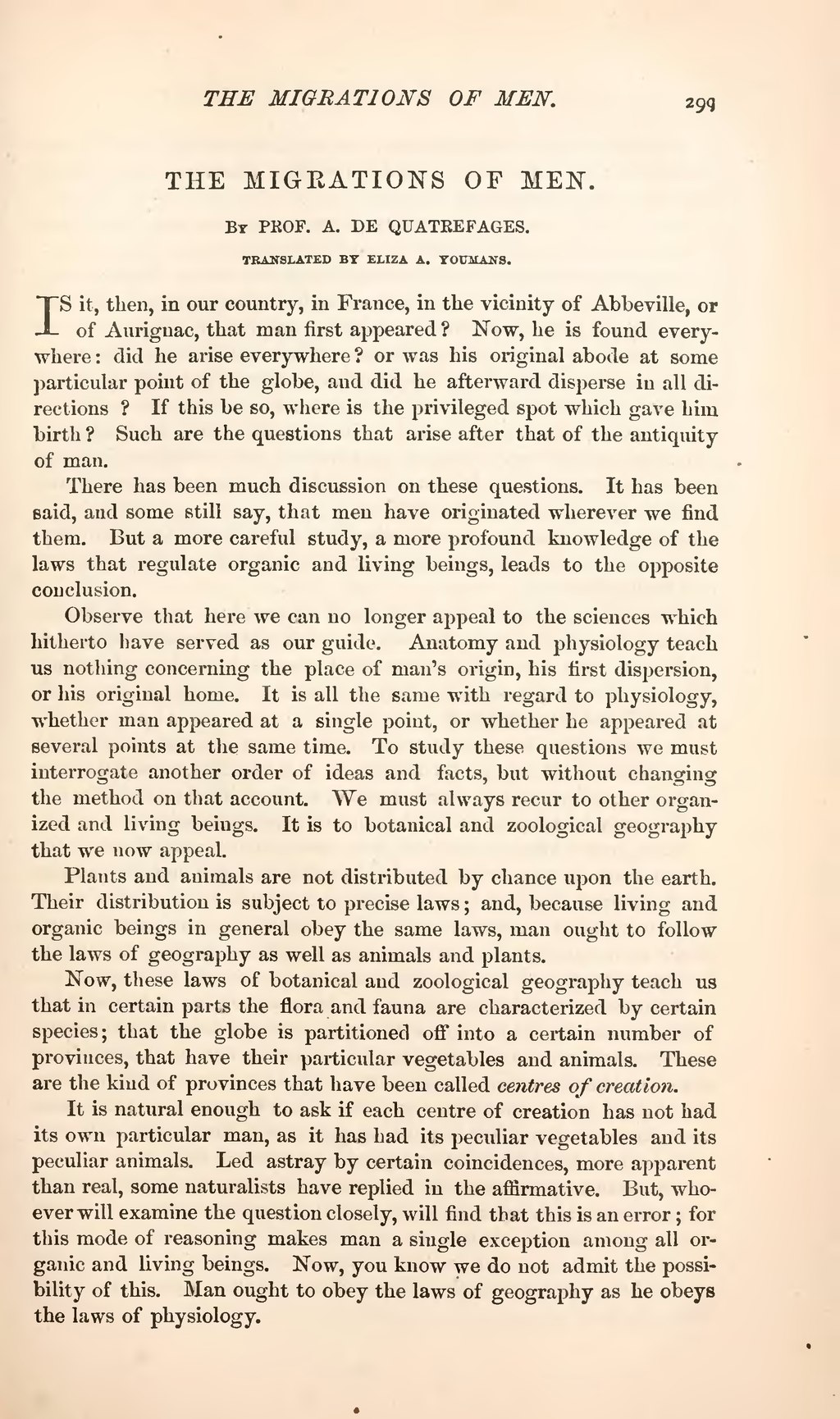| THE MIGRATIONS OF MEN. |
By PROF. A. DE QUATREFAGES.
TRANSLATED BY ELIZA A. YOUMANS.
IS it, then, in our country, in France, in the vicinity of Abbeville, or of Aurignac, that man first appeared? Now, he is found everywhere: did he arise everywhere? or was his original abode at some particular point of the globe, and did he afterward disperse in all directions? If this be so, where is the privileged spot which gave him birth? Such are the questions that arise after that of the antiquity of man.
There has been much discussion on these questions. It has been said, and some still say, that men have originated wherever we find them. But a more careful study, a more profound knowledge of the laws that regulate organic and living beings, leads to the opposite conclusion.
Observe that here we can no longer appeal to the sciences which hitherto have served as our guide. Anatomy and physiology teach us nothing concerning the place of man's origin, his first dispersion, or his original home. It is all the same with regard to physiology, whether man appeared at a single point, or whether he appeared at several points at the same time. To study these questions we must interrogate another order of ideas and facts, but without changing the method on that account. We must always recur to other organized and living beings. It is to botanical and zoological geography that we now appeal.
Plants and animals are not distributed by chance upon the earth. Their distribution is subject to precise laws; and, because living and organic beings in general obey the same laws, man ought to follow the laws of geography as well as animals and plants.
Now, these laws of botanical and zoological geography teach us that in certain parts the flora and fauna are characterized by certain species; that the globe is partitioned off into a certain number of provinces, that have their particular vegetables and animals. These are the kind of provinces that have been called centres of creation.
It is natural enough to ask if each centre of creation has not had its own particular man, as it has had its peculiar vegetables and its peculiar animals. Led astray by certain coincidences, more apparent than real, some naturalists have replied in the affirmative. But, whoever will examine the question closely, will find that this is an error; for this mode of reasoning makes man a single exception among all organic and living beings. Now, you know we do not admit the possibility of this. Man ought to obey the laws of geography as he obeys the laws of physiology.
